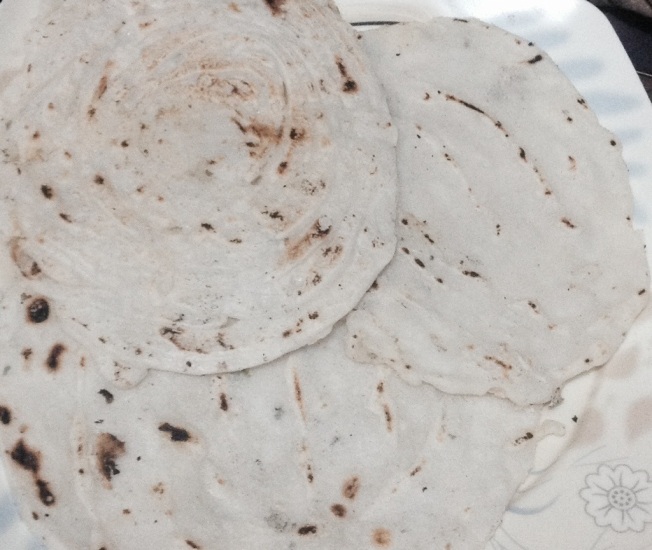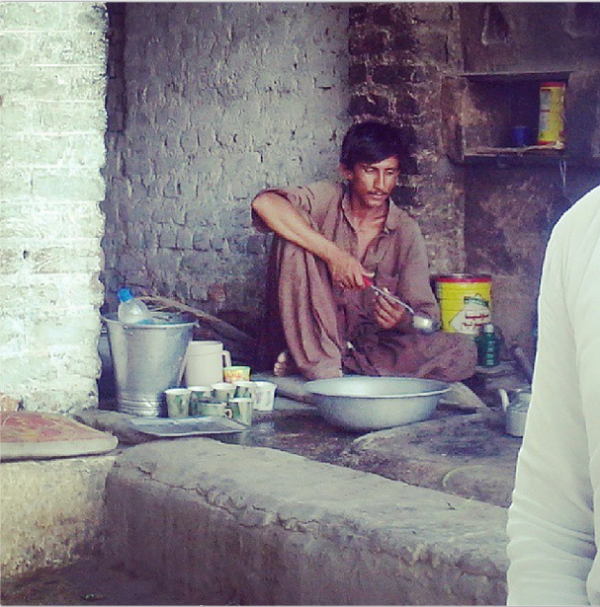Love these rice flour pancakes. Although the original way of making these rotis is rather hard (you are supposed to make hard dough and spread in on a hot pan with your hand or a circular bowl), making runny dough pancakes takes just a minute or so.
Simply add water to the rice flour and mix it well. Use a ladle to drop 4-6 tablespoons of the mixture on a hot pan.

Let it cook on one side, flip, and cook it on the other side too. Ta da!

To make Garlic pancakes, simply add some green garlic, salt and red chilli flakes to the rice flour mixture and cook it the same way as above.

Even yummier. Serve it with fried potatoes and some mint yoghurt. Or you can also splash some butter on to hot garlic rotis. Mmmm.


